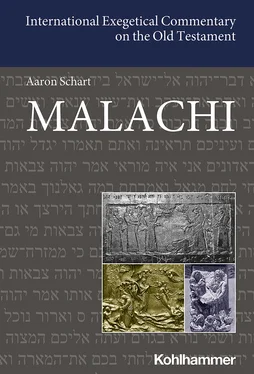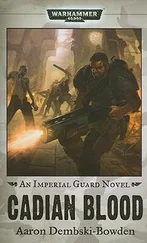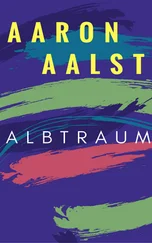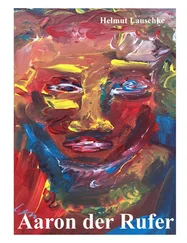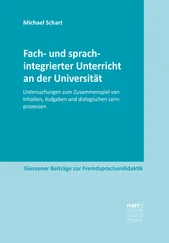Primary stratum The transmission of the Malachi document began with the collection and publication of six disputation speeches stemming from a single author. This primary stratum would probably have consisted of the text as follows: Mal 1:2–3; 1:6, 7b, 9b, 10b, 13aα–14a; 2:9a; 2:10, 11a*, 11b, 12a, 14–15, 16a*, 16b; 2:17–3:1a, 5; 3:6, 8–12; 3:13–15, 18, 19* [4:1* ET], 20a* [4:2a* ET], 20b [4:2b ET]. 20
Oral stratum The question whether the earliest literary stratum is based on orally transmitted arguments is occasionally answered in the negative, 21but two arguments commend affirming oral disputations. First, there must have been a reason why the author developed a variant of the genre “disputation sequence” at all. What is the point of creating a literary simulation of a vivid disputation if the readers were utterly unfamiliar with anything of the sort? Second, the quotations of the opponents (quite extensive for a prophetic context), no matter how much they have been reformulated and polemically skewed by the prophet, do express real contrary positions. It makes no sense to suppose that an author would have taken the trouble, after the fact, to shape his convictions in a form that makes room for the opponents’ independent utterances, then leaving it to the readers to judge whether those opponents have been convincingly refuted.
The oral disputations, to the extent they touched on cultic matters, may have taken place within the milieu of the temple and the priesthood. Moral and socio-ethical questions could have been debated in the public assembly in Jerusalem (cf., e.g., Ezra 10:8–9; Neh 5:13; 8:1–2; 8:13; 9:1; 13:1, 11).
Reworkings of the independent Malachi document The Malachi document was redactionally revised while it was still an independent work. In particular the second disputation speech was edited in such a way that a critique originally directed at the laity was now applied to the priests and Levites. That editing is also connected with the addition in Mal 2:12b–13, which refers to an unacceptable weeping and groaning during service at the altar, and with the insertion of Mal 3:3–4, which expects a purification of the Levitical priesthood.
The “word of God” formula The Malachi document uses the formula אמר יהוה צבאות, ’āmar Yhwh ṣǝbā’ôt , “says Yhwh of hosts” twenty times. 22The high number of occurrences are in themselves striking: the repetition is completely unmotivated and seems to provide exaggerated emphasis. This formula in particular is used to show that the disputation speeches are the direct word of God. The formula is inserted in very different ways: In Mal 1:8, for example, it provides a very solemn and emphatic assertion of guilt. It is also appropriate as reinforcement for an accusation or the announcement of punishment inasmuch as it points out that it is up to Yhwh—and not to human beings—to carry out the declarations of punishment. But in most cases the formula is superfluous because the context clearly identifies Yhwh as the speaker. The formula is out of place in passages that simply attest to a factual situation (Mal 1:9b; 1:11b, 12a; 1:13aα). Likewise, the formula is altogether disruptive when it is placed in the middle of the caesura of a bicolon (Mal 1:10b; 1:11b, 12a; 1:14b). One passage in which the ’āmar Yhwh ṣǝbā’ôt formula is completely out of place is Mal 1:13, a discourse explicitly marked as a quotation of the opponents, so that the speech is additionally and falsely marked as the word of Yhwh.
“What a weariness this is,” you say, and you sniff at me, says the Lord of hosts.
The simplest explanation is that in these cases the formulae were secondarily inserted. Only in Mal 1:6bα3 is the formula such a necessary syntactical component of the sentence that it can scarcely be excluded from the oldest stratum.
The multiple insertions of the formula probably occurred because the genre of the disputation speech provides an unusually large space for the words of the opponents. When the counter-questions of the opponents are inserted as quotations the readers themselves can judge whether the prophet’s arguments are persuasive. In order to debase any doubts about the prophet’s arguments the redactors frequently refer to their divine origin.
Incorporation into the Book of the Twelve Prophets
The collection of disputation speeches was then included in the Book of the Twelve Prophets. Some of the redactional additions reveal that they are related to comparable redactional insertions in other writings among the Twelve. From this, we may conclude that those additions were included in the course of the integration of the Malachi document into the Book of the Twelve, or that they presuppose that incorporation and are intended to strengthen it. Additions that belong to the context of the Book of the Twelve Prophets are:
– The transfer of the genre designation משׂא from Zech 9:1 and 12:1 to Mal 1:1.
– The genre designation דבר יהוה, which links to the superscriptions of the preexilic writings (Hos 1:1; Joel 1:1; Mic 1:1; Zeph 1:1) and is probably associated with the ’āmar Yhwh formulae. This indicates the effort to depict the disputation speeches as direct words of God.
– Mal 1:4–5 follows the terminology of the Obadiah document.
– Mal 1:11 links to Zech 14:9 inasmuch as the verse describes Yhwh’s royal rule over the nations.
– The references to the day of Yhwh (Mal 3:2; 3:23b [4:5b ET]) take up the words of Joel (Joel 3:4b).
– The insertion of מלאך יהוה, “messenger of Yhwh” (in Mal 2:7; cf. also “messenger of the covenant” in 3:1bβ) may well be associated with the similar additions in Zech 1:11aα, 12aα1; 3:1aβ, 5bβ, 6; Hag 1:13.
– The call to repentance in Mal 3:7 belongs with the same expression in Zech 1:3.
– The judgment of purification in Mal 3:2–3 extends Zech 13:9.
– The fearers of Yhwh in Mal 3:16, 20a [4:2a ET] are connected with the Jonah document (Jon 1:16).
The Malachi Document as the Final Section of the Book of the Twelve Prophets
It is true that the Malachi document did not originate as the conclusion to the Book of the Twelve, 23but it was placed secondarily at the close of that book, and that action was deliberate. Some of the redactors who worked on the Malachi document followed that prompting and fashioned purposeful links to the preceding documents in the Book of the Twelve Prophets. The result was that readers were tasked with interpreting the Malachi document as the last link in the prophetic chain.
Haggai, Zechariah, Malachi First we should note that the last three prophets in the Book of the Twelve were regarded by the redactors as representatives of a new epoch. The dating contained in the Haggai and Zechariah documents assigned them to a time in which Israel, after the Babylonian exile, was being ruled by Persian kings and experiencing a restoration. 24In Zech 1:4 the break is clearly marked: the phase of the “earlier prophets” ( hannǝbi’îm hāri’šonîm )—who had not been heard by the ancestors—is in the past; now something new can begin. The political change corresponds to an inner transformation of the people. That is to say, the people is experiencing a return to Yhwh (Hag 1:12; Zech 1:3, 6).
Addition to Zech 14 If we see the Malachi document as the conclusion to the Book of the Twelve another question arises: what is the function of this writing in light of Zech 14? 25After all, Zech 14 fulfills every expectation one might have of a brilliant closing chapter for the Book of the Twelve. It projects a grandiose scenario of the day of Yhwh, drawing together all the threads found thus far in the Book of the Twelve. In particular it resolves the problem of how the hope for a spontaneous adherence of the nations to the belief in Yhwh and hope for an end to oppression by the great powers may become reality. To that purpose Zech 14 proposes a dramatic sequence: on the day of Yhwh the nations attacking Jerusalem will be struck down and destroyed; thereafter the remainder of the nations will celebrate the Feast of Tabernacles ( Sukkoth ) together with the remnant of Israel.
Читать дальше
